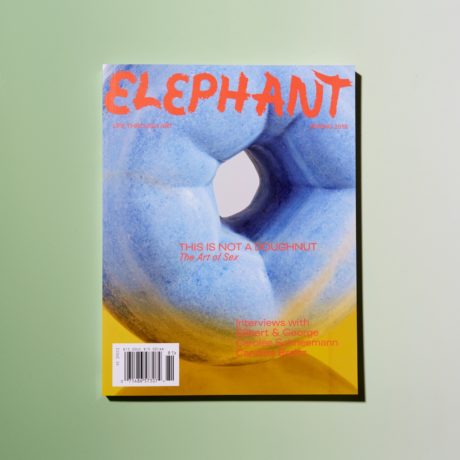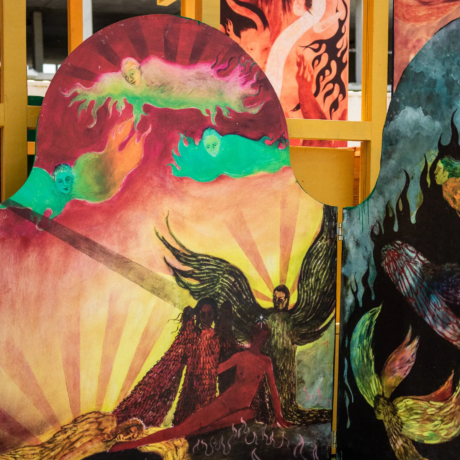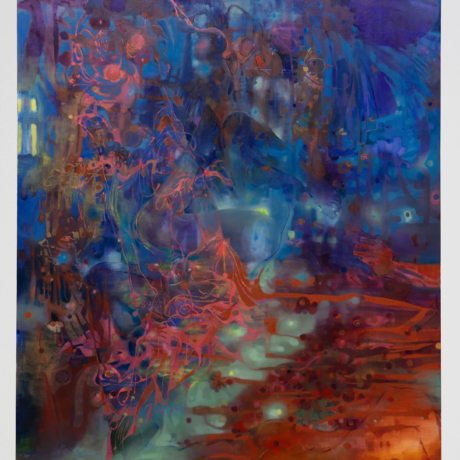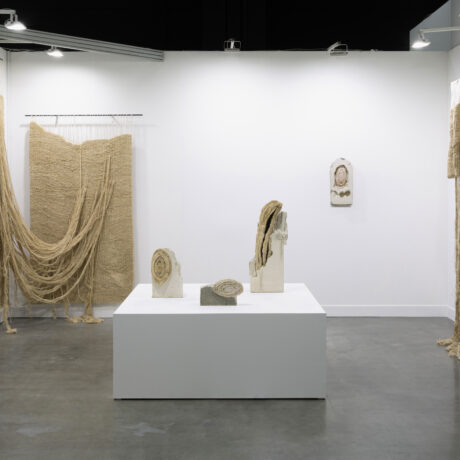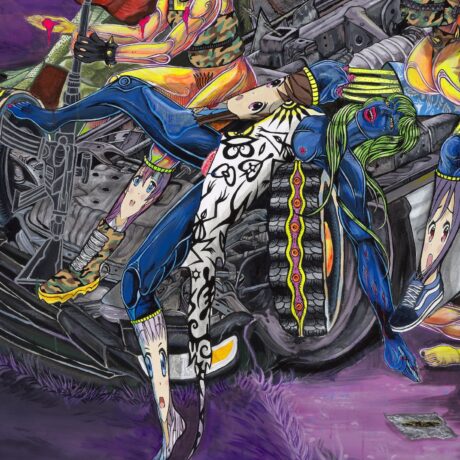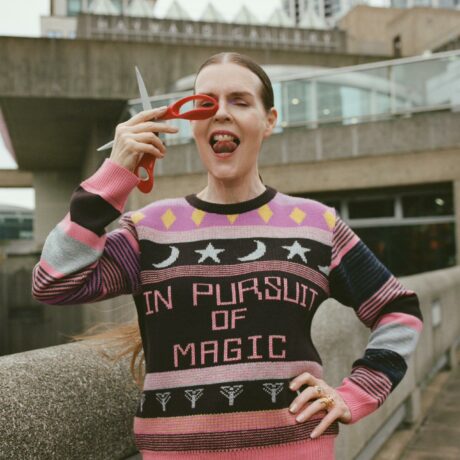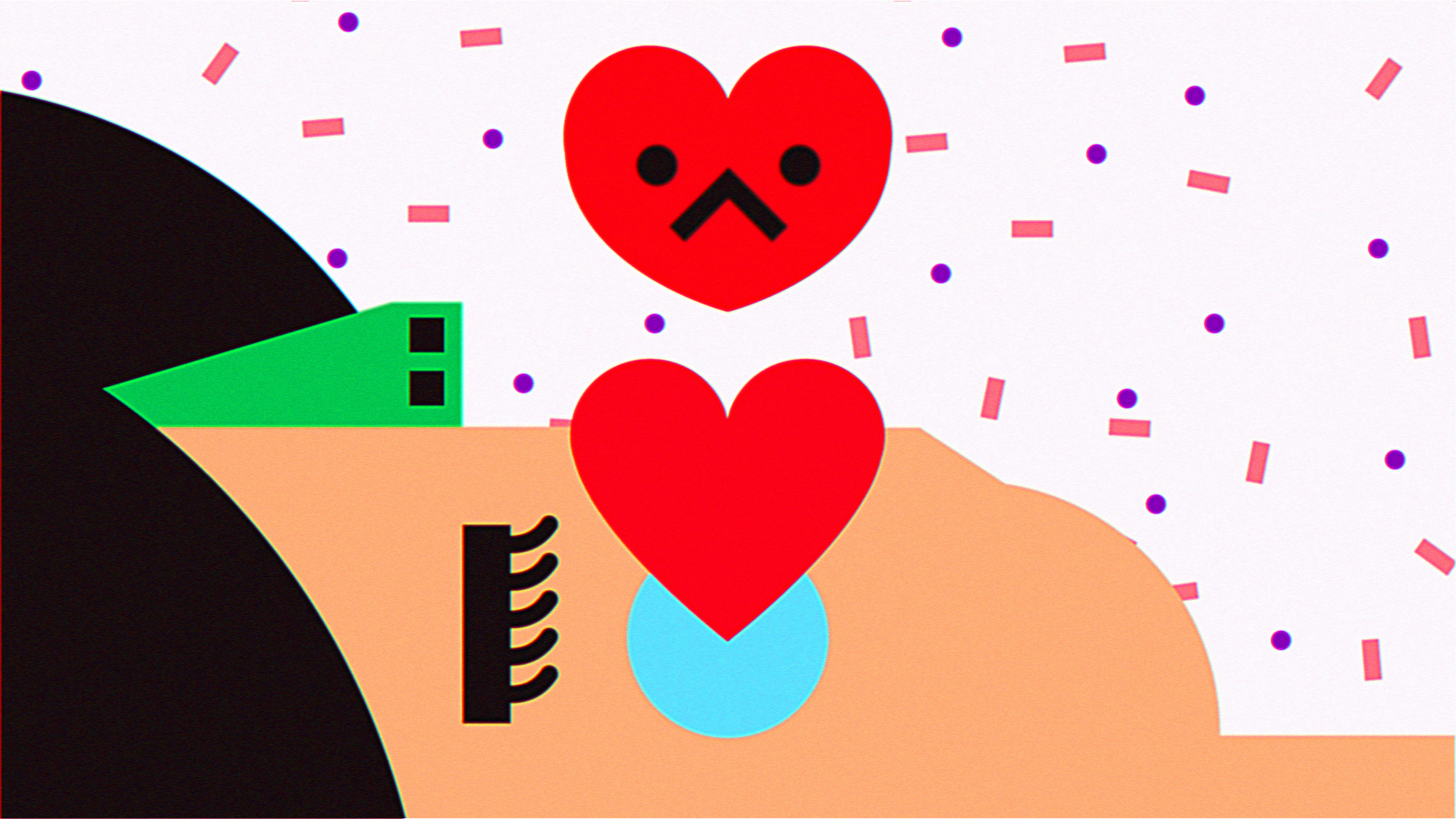
My first introduction to Wong Ping’s work was a still from his animation Doggy Love. A tiny man wearing nothing but shoes sits on a blue strip between a pair of butt cheeks. Is this strip a body of water or a thong? How has he shrunk himself, not to mention his little trainers, down to fit inside an arse crack? Or is the arse crack so big that an average-sized man can nestle snuggly inside? Are these questions even necessary? In any case, he looks like he’s having a good time.
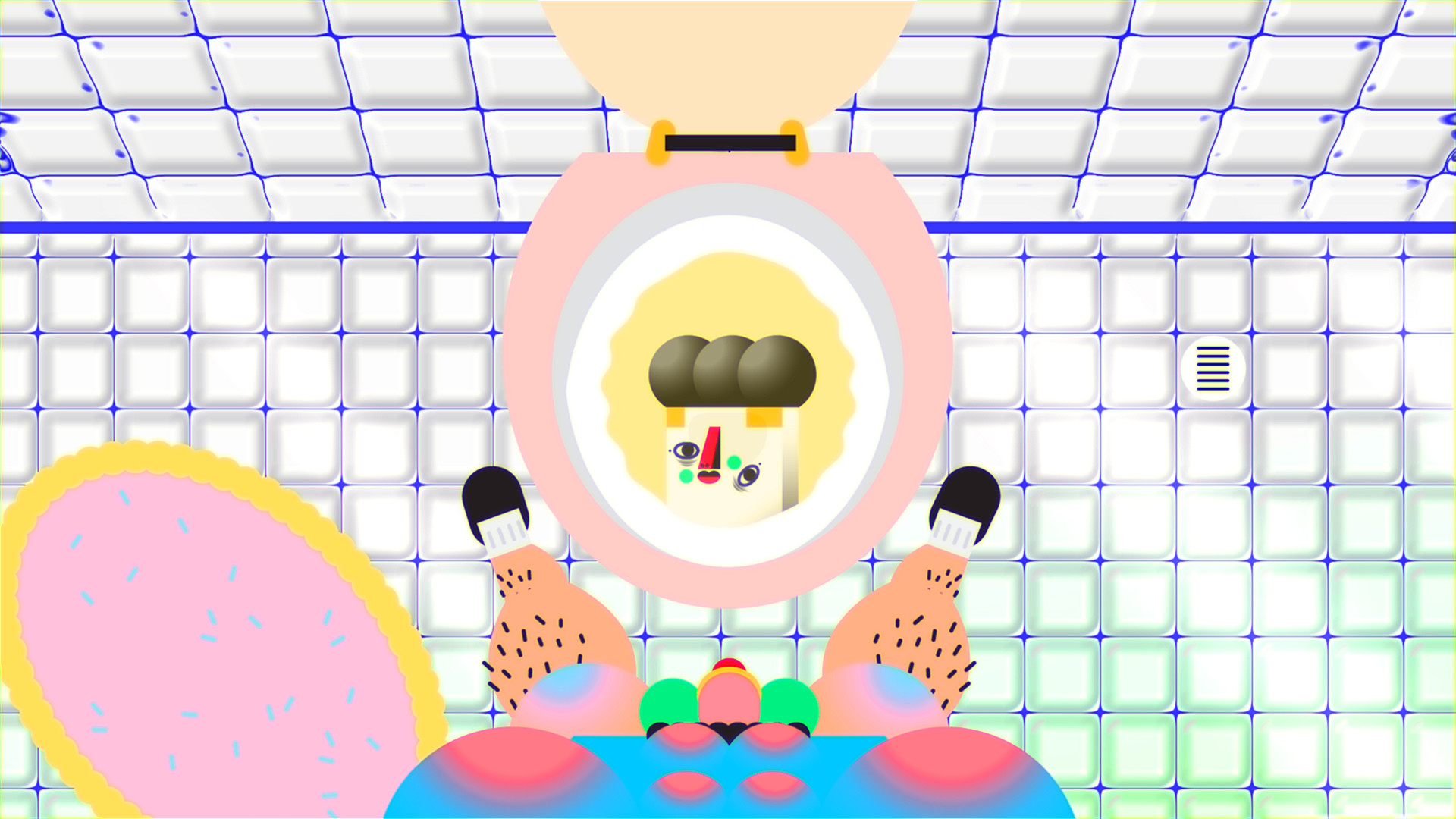
Everything looks sweet on first viewing of Wong Ping’s work, but watch a little longer and you’ll realize you’ve been sucked into some kind of surreal Tinder bad dream. Whilst sex and technology in the modern age are subjects constantly up for discussion, few put our cultural fears, shames and obsessions under such a rainbow-coloured filter. I spoke to the artist about his work.
How is sex explored in your work?
Sex is not necessarily the subject I want to explore, but a language I use in most of my works. Some might use fruits to represent sex; I use sex to discuss fruits. What my works really explore is desire, or one’s struggle under suppression. To me, sex is a quotidian subject—it sometimes happens more often than me eating fruits, yet sex creates far more problems than eating fruits: shame, pride, pleasure, depression, pregnancy, venereal disease, jealousy, lies, etc. Sex allows me to understand myself more clearly than eating fruits, and that’s how it’s reflected in my work.
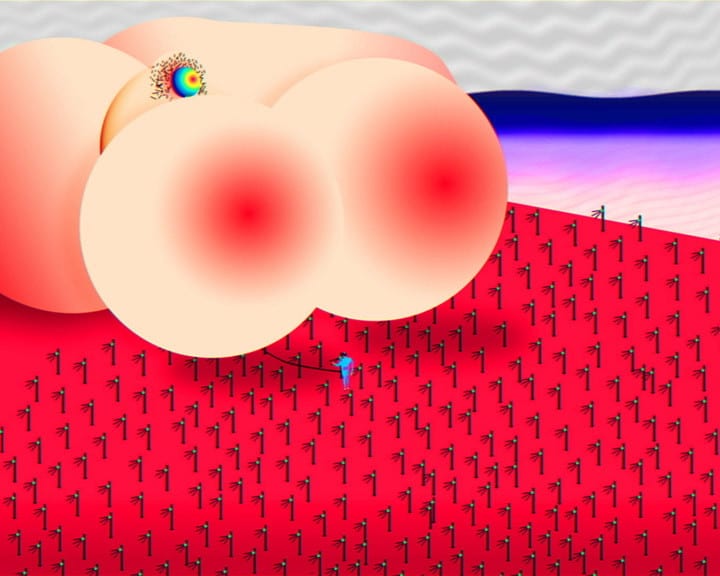
Your films are almost always darkly humorous. Is sex inherently funny?
Sex can be skillful and complex. If you find humour in my works—congratulations! You must have a very fulfilling sex life. Maybe someday when I grow older and became impotent, I will carry a different attitude towards sex. At the moment I think sex itself is enjoyable, but not “funny”.
“If you find humour in my works—congratulations! You must have a very fulfilling sex life”
Yet the sex in your work can be very explicit, sometimes violent or just plain strange. Do you aim to shock?
How could it be shocking when I am just putting forward an honest and direct representation of “sex”? Compared to that wild animated porn that depicts a monster with penises all over its body fighting against a wet sexy robotic chick, I am ashamed of how normal my works are. Even in reality, my friends’ sexual experiences are much wilder than those in my work! The plot, or issues explored in my work, when portrayed through sex, might result in something shocking, or lovely.
Have you ever had feedback from more conservative people who find your videos very shocking?
Very often. I was once named an “ostentatious Hong Kong dog”—how interesting! I always try to get close to the opposing crowd to understand where the problem lies, I will then take reference from them and find my balance. After all there are too many sects in our society, within each sect lies a broad variety of beliefs, if we followed them strictly most artistic creations would be eliminated. To me it would no longer be a humane but a nihilistic state. Without individual thoughts, there is no need for artistic creation. I am not a saint nor your teacher, it is my final decision whether or not I accept your comments. A few days ago I had a lengthy discussion with a feminist on Facebook, I am tired.
Dating apps and internet porn feature in some of your films. How do you feel technology has affected humans’ relationship to love and lust?
I recently think that dating apps (especially Tinder, since it’s most popular) should be awarded the Nobel Peace Prize. Dating apps will completely change our appearances, colours, cultures and traditions in the future. This is what I have observed from social gatherings in recent years—a lot of my friends are bringing foreign partners, often white people, to our gatherings. Interestingly, most of them used to have a narrow social circle, they did not have foreign friends and could hardly speak English. Dating apps, however, redefined their fates and brought together people of different races; they encourage racial integration.
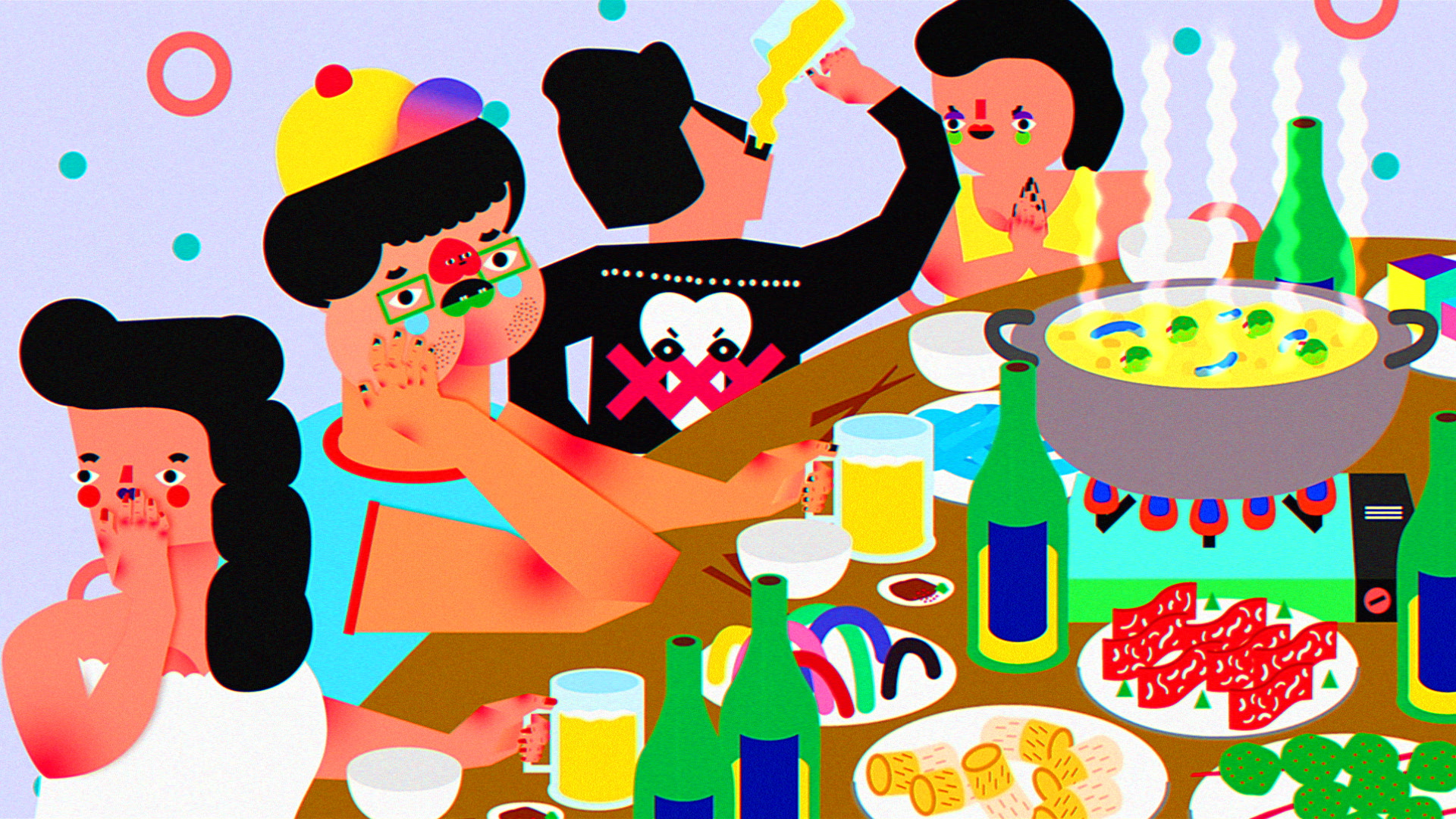
There is a sense of isolation in your work. So often, we hear talk of younger generations across the world having less and less sex. Do you see your work as a reaction to this in any way?
The isolation in my work comes from our modern lifestyles instead of sex, I am still positive towards sex. Today’s society is too materialistic and flooded with all kinds of entertainment. Sexual pleasure could be easily and instantly replaced by other things, and the cost for sex is too high: time, courage, money, skills, solitude, nervousness—such torture! I believe the isolation you see probably comes from my hopelessness towards love.
“Dating apps will completely change our appearances, colours, cultures and traditions in the future”
Where do the stories in your films come from? Are they fantasies? Or dreams?
26% personal experience, 21% world phenomenon, 29% crankiness, 10% friends’ experience, 2% pressure from deadlines, 7% random and 7% mean. Right, every time I pay 102%.
This feature was originally published in issue 34
BUY ISSUE 34